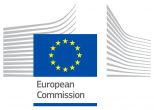A Turning Point In Combating Illegal Trade: Revised EU Action Plan Against Wildlife Trafficking
TRAFFIC welcomes the European Commission’s publication of the revised EU Action Plan Against Wildlife Trafficking, the framework for EU actions against wildlife trafficking inside the EU and globally for the next five years.
Revised EU Action Plan Against Wildlife Trafficking
The publication of the revised Action Plan comes at a critical moment for preserving global biodiversity and ahead of two major international meetings: the United Nations Biodiversity Conference COP151 in Montreal in December and the CITES COP192 that will be held from 14-25 November in Panama.
Building on the previous Action Plan adopted in 2016, the Commission has responded ambitiously to the increasingly complex EU and global organised wildlife crime that operates on the back of biodiversity conservation and development issues.
TRAFFIC calls on the EU Parliament and the Member States to endorse this Action Plan and for its 27 Member States to implement its actions actively.
"It is particularly encouraging to see the Action Plan calling for dissuasive sanctions for wildlife crime and stressing the importance of consistency in their application across the 27 EU Member States. This also sends a critical message to EU decision-makers that are currently revising the EU Environmental Crime Directive as it reinforces the importance of a strong common EU legal framework to fight wildlife crimes,” said Dr Annamaria Balogh, Project Manager of the EU-funded project Successful Wildlife Crime Prosecution in Europe at TRAFFIC.
She continues: “We are also positive about the Plan’s attempts to create synergies with several other relevant EU policies, including some still in the process of adoption, such as on environmental crime, free trade agreements and to curb EU-driven deforestation, as all of these together are fundamental in mainstreaming and achieving the overall aims of the revised Action Plan.”
TRAFFIC is particularly encouraged to see that the revised Action Plan contains some essential new or more robust elements compared to the previous plan, such as:
- Strong focus on financial investigations and asset recovery;
- Action to step up social-science-based consumer behaviour change, including in the EU (a prominent market for illegal wildlife/products);
- A call to all the 27 EU Member States to define and assign clear responsibilities for implementing the actions at the national level;
- Commitment to addressing the potential health risks from illegal and unregulated wildlife trade with a One Health approach;
- The source-to-consumer approach;
- Emphasis on combatting wildlife trafficking online.
While it is reassuring that the Action Plan stresses the need for sufficient financial and human resources for its implementation, it is less clear at this stage how this will be achieved.
TRAFFIC stands ready to assist the Commission and the EU Member States in their implementation of the Action Plan and their efforts to tackle illegal and unsustainable trade in wildlife.
Beyond Europe
TRAFFIC welcomes the Commission’s intention to strengthen the global partnership of source, consumer and transit countries. The plan's proposal of ambitious commitments to combat wildlife trafficking in future Free Trade Agreements (FTAs) is highly significant, and existing and future FTAs must fully align with this Action Plan.
We also praise the important mention of NaturAfrica, and the upcoming Forest Partnerships, as frameworks to technically and financially support the Action Plan. We urge the Commission to further mainstream actions against wildlife trafficking and towards sustainable and legal wildlife trade across its development and cooperation policy and associated funding.
Equally, TRAFFIC finds it extremely positive to read the objective of involving local communities and indigenous peoples (IPLCs) as well as civil society in the implementation of the Action Plan. We particularly praise the human rights and gender approach included in the plan.

Notes:
The adoption of the revised Action Plan attests to the commitments made by the Commission under its Biodiversity Strategy for 2030, as a core part of its European Green Deal, to “take a number of steps to crack down on illegal wildlife trade”.
EU-wide rules, the EU Wildlife Trade Regulations, have been in place in all Member States since 1983. They implement the provisions of CITES, the Convention on International Trade in Endangered Species of Wild Fauna and Flora, in the EU.
1. The 15th meeting of the Conference of the Parties to the Convention on Biological Diversity (CBD CoP15) will be held in Montreal from 17–19 December 2022.
2. The 19th meeting of the Conference of the Parties to the Convention on International Trade in Endangered Species of Wild Fauna and Flora (CITES CoP19), the main international body governing wildlife trade, will be held in Panama from 14–25 November 2022.
About European Commission

The European Commission promotes the general interest of the EU by proposing and enforcing legislation as well as by implementing policies and the EU budget.




